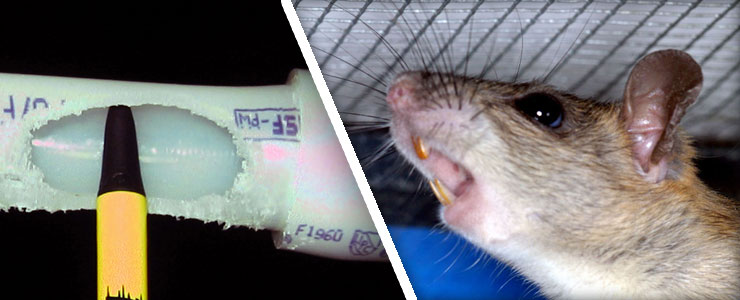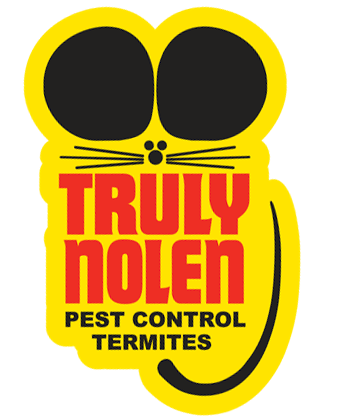
The presence of rodents in man’s environment was first documented in the 7th century.
A rodent presents three distinct threats to your commerical environment.
Surface & Product Contamination
The rodent feeds on debris, so it comes in contact with many diseases. Rodents are known vectors of more than 34 diseases, including the Plague, Salmonella, and Rabies.
Rodents contaminate everything they touch with their incessant urination, defecation and hair. The presence of rodent feces and urine creates an environment in which diseases can incubate.
Associated Vectors
Vectors, such as fleas, mites and ticks, are part of the rodent’s habitat. These feasting insects use the rodent as a host and transmit disease through this blood exchange. When the rodent host dies or is removed from the environment, the vectors actively search for another host mammal, such as a human, dog, or cat.
Destructive Rodent Behaviors
Once inside the structure, rodents can cause considerable property damage. With it’s incessant need the gnaw, the rodent is known as the most destructive vertebrate in the world. In fact, they do more than $2 Billion in damage annually in the U.S. Rodents will gnaw on electrical wiring, wood, PVC and metal pipes. This destructive behavior has resulted in structure fires from exposed wiring, as well as gas & sewer line leaks.
Not only does the rodent chew, it can cause serious personal injury when it bites! A rodent bite can pass strep bacteria to its victim, but often the bite itself is the critical event. Small children and infants are often victims of rodent bites.
Signs of Infestation
Most often, the business owner doesn’t actually see the rodent in his/her environment. Rather, there are signs that indicate its presence, including:
- Rodent droppings
- Unexplained chew marks
- Scratching or scampering noises
- Nesting materials found
- Damage to electrical wiring or plumbing
